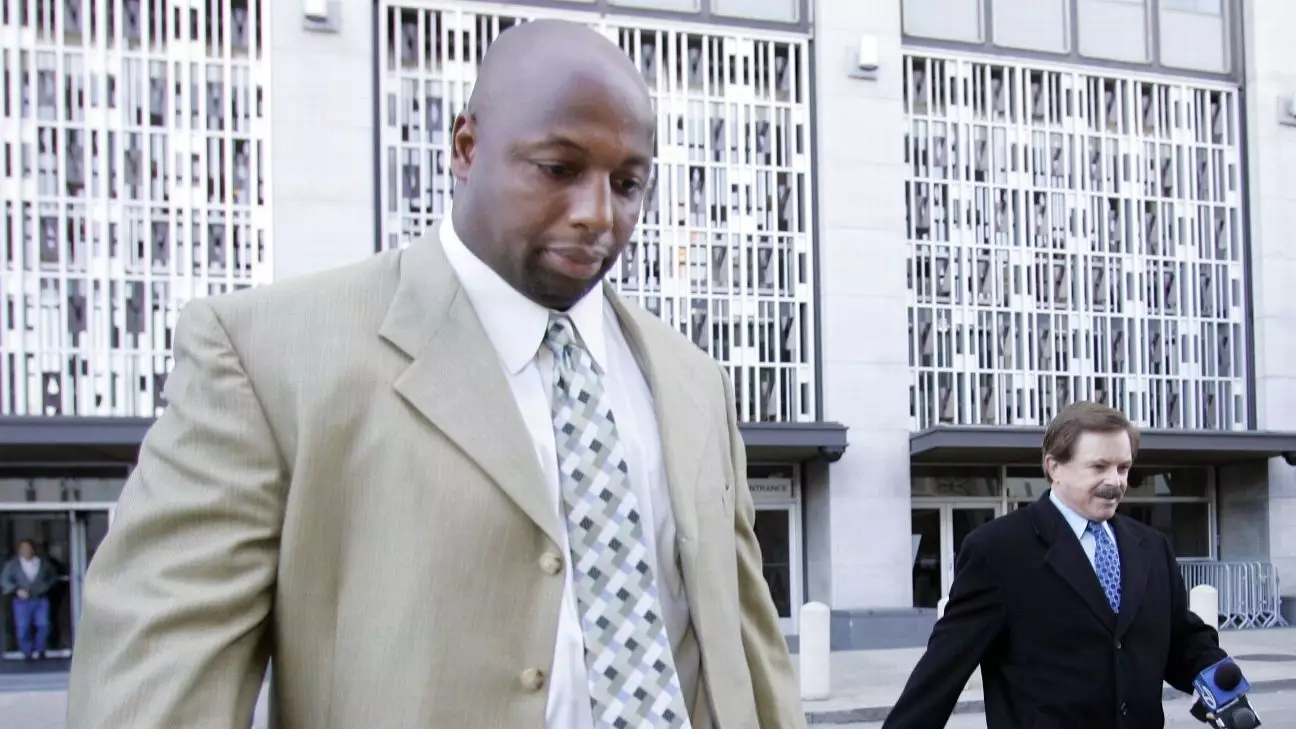Dana Stubblefield, once a celebrated defensive lineman for the San Francisco 49ers, has recently emerged from the shadows of his past notoriety after a noteworthy legal shift. His conviction for rape, which led to a daunting 15-year to life sentence, was vacated by an appellate court in December 2024. Yet, Stubblefield remains in prison, a complex situation that intertwines legal intricacies, racial bias allegations, and the social ramifications of high-profile criminal cases.
The initial conviction in 2020 stemmed from allegations that Stubblefield raped a developmentally disabled woman, whom prosecutors claimed he lured under false pretenses. The defense countered these accusations with the assertion that there was consent involved in the encounter. This duality presents a troubling aspect of Stubblefield’s case, which hinged not only on the facts presented but also the socio-political climate surrounding the legal proceedings.
The California Racial Justice Act of 2020 brought to light the severity of racial bias within the criminal justice system. Stubblefield’s conviction was not merely the result of his actions; it was colored by alleged prosecutorial misconduct, namely the use of “racially discriminatory language.” This pivotal element has reverberated throughout the case, placing the integrity of the judicial process under scrutiny. The Sixth District Court of Appeal found sufficient grounds to vacate Stubblefield’s conviction, emphasizing that the legal framework was compromised and his right to a fair trial was violated.
The reluctance of the Superior Court to grant bail currently hinges on this appeal process. Judge Hector Ramon’s refusal illustrates a cautious approach taken by the judiciary as it distills the complexities of the case further. Although Stubblefield’s attorneys have argued that he should benefit from his vacated conviction, the overarching authority of the appeals court looms large, delaying his potential release.
Stubblefield’s case provides insight into societal attitudes towards both race and high-profile defendants. The implications of his conviction and the subsequent vacating paint a loaded picture of how race can influence justice, consciousness, and public opinion. In the wake of the Black Lives Matter movement and increased awareness of systemic racism, Stubblefield’s circumstances underscore an evolving narrative about race relations and the mental frameworks that accompany them.
The reactions from various stakeholders reflect this tension. While Stubblefield’s legal team argues passionately for his release, stating that the legal process has rendered him innocent, the Deputy District Attorney’s office clings to the notion that he should remain incarcerated. This tug-of-war highlights the pervasive influence of media narratives, public opinion, and individual biases that often complicate judicial outcomes in such cases.
What lies ahead for Stubblefield remains uncertain. The custodian of his fate rests with the appellate court which is yet to issue a remittitur, a crucial step that would transition the jurisdiction back to the Superior Court. Until then, Stubblefield will continue to experience the consequences of a legal system still grappling with the repercussions of its former decisions.
The case also raises broader questions about accountability. When prosecutors misuse their power leading to wrongful convictions—especially under a lens of racial bias—what recourse exists for those impacted? Furthermore, as Stubblefield navigates this convoluted legal landscape, the intersection of race, fame, and justice comes under renewed examination, inviting discussions that transcend the courtroom.
Dana Stubblefield’s unfolding legal saga reflects enduring issues within the criminal justice system that go beyond the individual. His conviction, wrongful or otherwise, taps into profound societal narratives surrounding race, bias, and accountability. As his story develops, it stands as a testament to the vital conversations regarding equality and justice at a time when these issues remain at the forefront of national discourse. Whether he eventually achieves freedom or faces further legal challenges, Stubblefield’s case will undoubtedly resonate within discussions about reform in America’s legal landscape.


Leave a Reply